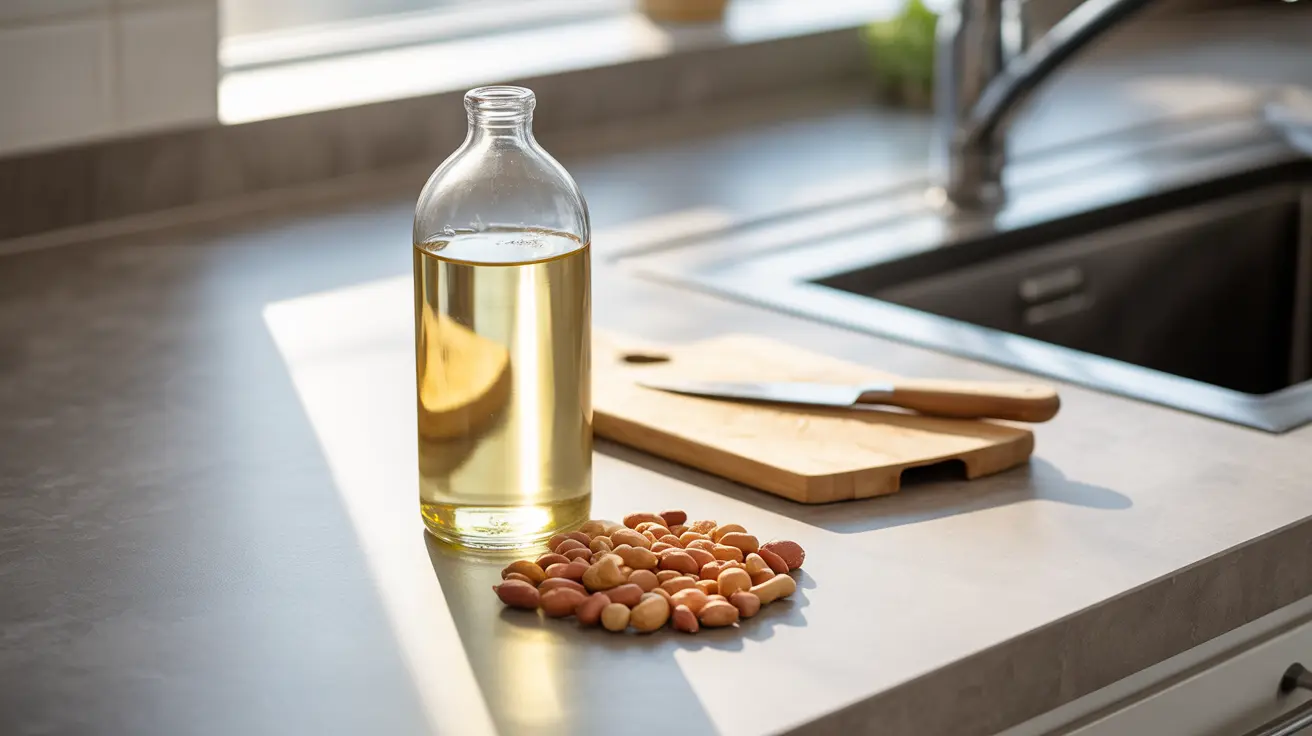Peanut oil has become increasingly popular in both home kitchens and restaurants, particularly for its high smoke point and versatile cooking applications. As more people seek healthy cooking oil options, understanding the nutritional profile and health implications of peanut oil is essential for making informed dietary choices.
This comprehensive guide explores the health aspects of peanut oil, examining its benefits, potential risks, and how it compares to other cooking oils. We'll help you determine whether peanut oil deserves a place in your kitchen and diet.
Nutritional Profile of Peanut Oil
Peanut oil consists primarily of monounsaturated and polyunsaturated fats, with smaller amounts of saturated fat. It's also a good source of vitamin E, an important antioxidant that supports immune function and skin health.
- Calories: 120
- Total fat: 14g
- Monounsaturated fat: 6.2g
- Polyunsaturated fat: 4.3g
- Saturated fat: 2.3g
- Vitamin E: 11% of Daily Value
Health Benefits of Peanut Oil
Heart Health Support
The high concentration of monounsaturated fats in peanut oil may help support cardiovascular health. These healthy fats can help maintain healthy cholesterol levels when used as part of a balanced diet.
Antioxidant Properties
Peanut oil contains vitamin E and other antioxidants that help protect cells from oxidative stress. These compounds may help reduce inflammation and support overall health.
Cooking Versatility
With a smoke point of approximately 450°F (232°C), peanut oil is particularly well-suited for high-heat cooking methods like frying and stir-frying without breaking down and producing harmful compounds.
Potential Risks and Considerations
Allergic Reactions
While highly refined peanut oil is generally considered safe for people with peanut allergies, cold-pressed or unrefined versions may contain peanut proteins that could trigger allergic reactions. Those with peanut allergies should consult their healthcare provider before using any type of peanut oil.
Omega-6 Content
Peanut oil is relatively high in omega-6 fatty acids. While these are essential fats, consuming too much omega-6 relative to omega-3 fatty acids may contribute to inflammation in some people.
Comparing Peanut Oil to Other Cooking Oils
- Olive oil has more monounsaturated fats and antioxidants but a lower smoke point
- Canola oil has a similar smoke point but less vitamin E
- Coconut oil has more saturated fat but potential antimicrobial properties
- Avocado oil has a higher smoke point and more monounsaturated fats
Best Uses for Peanut Oil
- Deep frying
- Stir-frying
- High-heat sautéing
- Asian cuisine
- Neutral-flavored cooking applications
Frequently Asked Questions
Is peanut oil healthy to use for cooking or frying?
Yes, peanut oil can be a healthy choice for cooking and frying when used in moderation. Its high smoke point makes it stable for high-heat cooking, and its composition of mostly unsaturated fats supports heart health.
What are the health benefits and risks of consuming peanut oil?
Benefits include heart-healthy fats, vitamin E content, and antioxidant properties. Risks include potential allergic reactions from unrefined varieties and high omega-6 content, which should be balanced with omega-3 sources in the diet.
How does peanut oil affect heart health and inflammation?
Peanut oil's monounsaturated fats can support heart health by helping maintain healthy cholesterol levels. However, its high omega-6 content means consumption should be balanced with omega-3 sources to manage inflammation.
Can peanut oil cause allergic reactions in people with peanut allergies?
Highly refined peanut oil is typically safe for people with peanut allergies as the refining process removes allergenic proteins. However, unrefined or cold-pressed peanut oil may trigger reactions and should be avoided by those with peanut allergies.
What are the differences between peanut oil and other cooking oils like olive or canola oil?
Peanut oil has a higher smoke point than olive oil but similar to canola oil. It contains more vitamin E than canola oil but fewer antioxidants than olive oil. Its neutral flavor and stability make it ideal for high-heat cooking, while olive oil is better suited for low-heat cooking and dressings.




